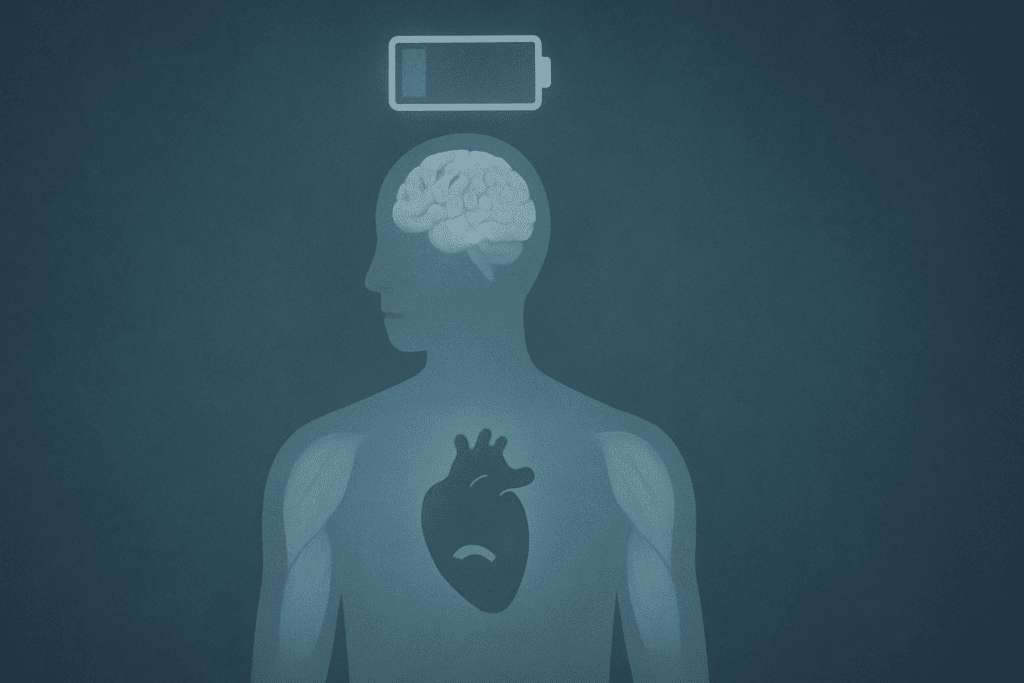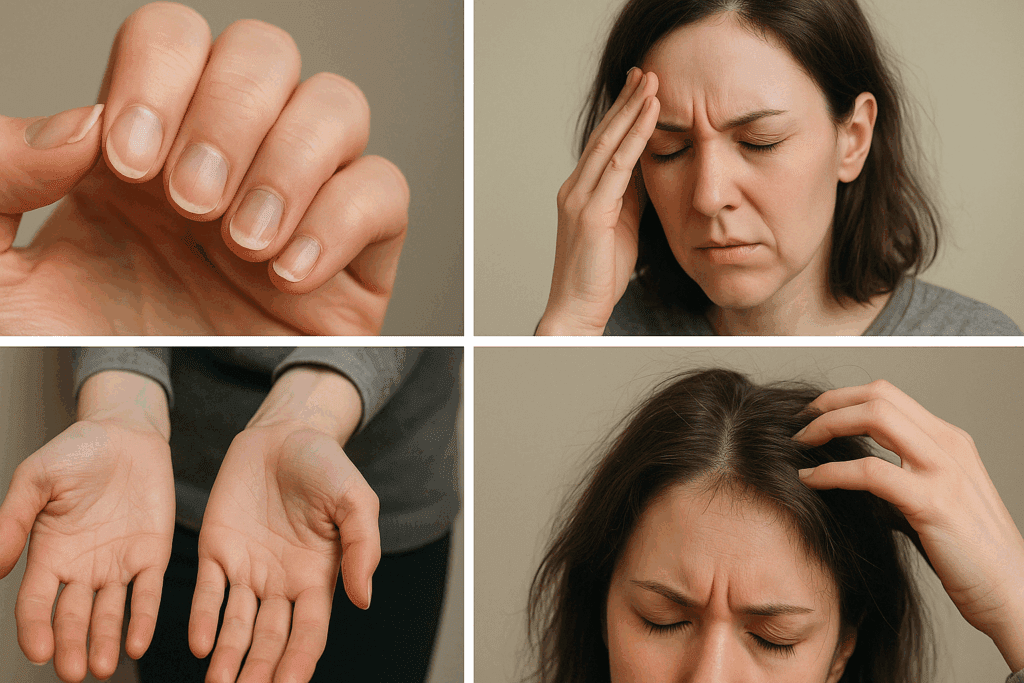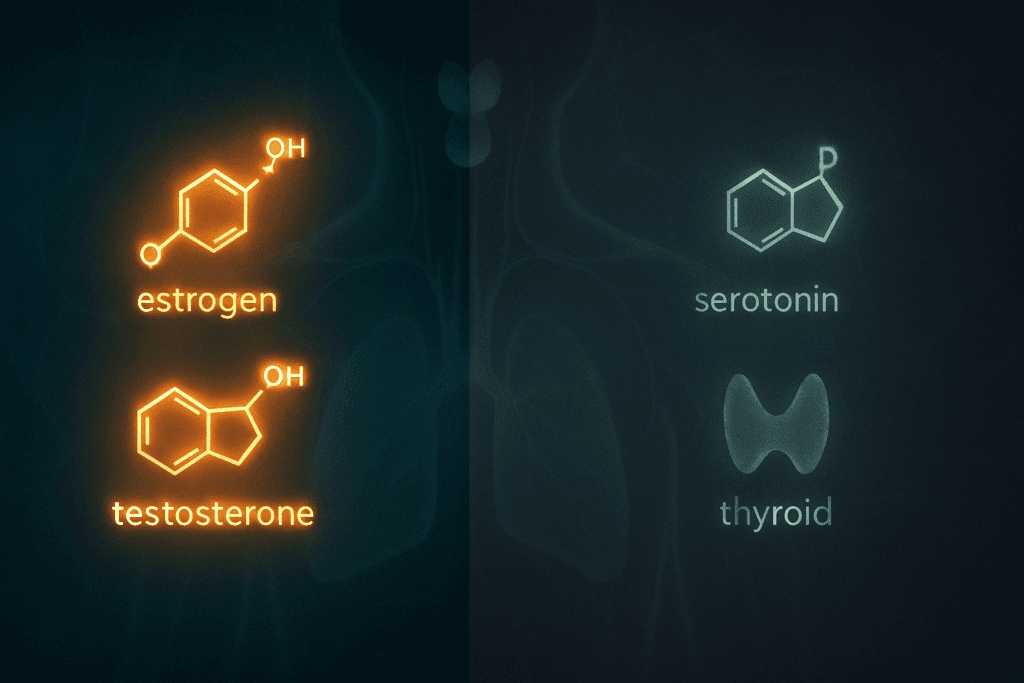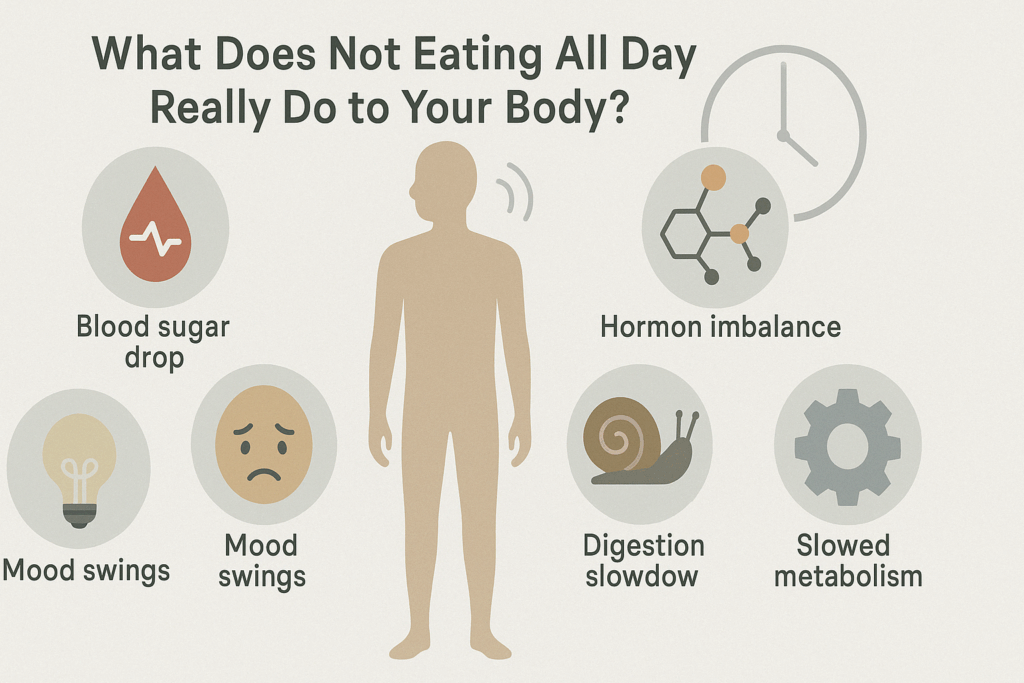Introduction: The Hidden Toll of Undereating on Energy and Health
In today’s fast-paced world, it’s easy to overlook regular meals or cut calories in the name of fitness or weight loss. But not eating enough doesn’t just leave you hungry—it can leave you exhausted, mentally foggy, and physically unwell. If you’ve ever asked, “why does not eating make me tired?”, the answer lies in how your body responds to energy deprivation. Recognizing the symptoms of not eating enough and understanding their impact is crucial for anyone looking to maintain physical, emotional, and cognitive well-being. This article explores the physical signs of not eating enough, the side effects of not getting enough calories in a day, and why addressing symptoms of undereating is essential to long-term health.
You may also like: Macronutrients vs Micronutrients: What the Simple Definition of Macronutrients Reveals About Your Diet and Health

Why Not Eating Enough Leads to Fatigue
Calories are the body’s primary energy source. When you’re not eating enough, you deprive your cells of the fuel they need to function. The result? Fatigue that lingers no matter how much you sleep. People often wonder, “can not eating make you tired?”—and the answer is a medically proven yes. Without adequate energy intake, your metabolism slows, your muscles weaken, and even your brain begins to operate less efficiently. This biological slowdown makes the question “does not eating make you tired?” more than rhetorical—it’s a warning signal from your body.

Early Physical Symptoms of Not Eating Enough
Before major health problems develop, your body sends early warning signs. The symptoms of not eating enough can start subtly—lightheadedness when you stand up, cold hands and feet, brittle nails, and headaches. As caloric deprivation continues, these physical signs of not eating enough grow more pronounced. You might experience hair thinning, muscle cramps, slowed wound healing, and digestive issues. Constipation, feeling cold, and low calorie intake often go hand-in-hand, as your gastrointestinal system and metabolic rate both begin to downshift in response to energy scarcity.

Cognitive and Emotional Consequences of Undereating
Nutrition isn’t just about physical strength—it’s also critical for mental performance and emotional regulation. The brain runs primarily on glucose, and when calorie intake is low, your cognitive function can suffer. Difficulty concentrating, low mood, irritability, and even anxiety are common symptoms of undereating. These may appear as subtle shifts at first but can escalate into depression or persistent brain fog. One of the most overlooked side effects of not eating enough is how it disrupts mental clarity, motivation, and emotional balance, which are essential for daily functioning and personal well-being.
What Happens to the Body During Prolonged Undereating
People asking, “what does not eating do to your body?” are often surprised to learn that undernutrition affects nearly every system. Over time, symptoms from lack of eating include weakened bones due to calcium loss, disrupted menstrual cycles, slowed thyroid function, and suppressed immunity. The body prioritizes energy for survival, sacrificing reproductive and metabolic health in the process. These are not temporary inconveniences—they are serious consequences of long-term undernourishment. The side effects of not eating can persist for years, even after normal eating resumes, particularly when undereating becomes chronic.
Constipation, Feeling Cold, and Low Calorie Intake: What’s the Connection?
It’s not uncommon for those who restrict food to complain of being constantly cold or dealing with sluggish digestion. These signs may seem unrelated, but they share a common root. Constipation, feeling cold, and calories are connected through your metabolism. When calorie intake drops too low, your body reduces its energy expenditure, including the energy needed for digestion and thermoregulation. This is why symptoms of not eating all day—like feeling chilled or bloated—often appear together. These changes are more than uncomfortable; they signal that your body is entering energy conservation mode.

The Role of Hormones in the Side Effects of Not Eating Enough
One of the most serious but silent consequences of undereating is hormonal imbalance. The body reduces production of estrogen, testosterone, thyroid hormones, and even serotonin when caloric intake is consistently too low. These changes can lead to fatigue, mood swings, decreased libido, and menstrual irregularities. The side effects of not getting enough calories in a day thus go beyond physical symptoms and into deep-rooted endocrine dysfunction. Restoring hormonal health requires not just eating more, but doing so consistently and with adequate nutrient diversity.

Undereating and Physical Performance Decline
Many people undereat unintentionally, especially those engaged in intense exercise routines. Without enough calories, the body struggles to build and maintain muscle. This can result in slower recovery, persistent soreness, and performance plateaus. If you’re feeling weaker or constantly fatigued after workouts, it might not be overtraining—it could be undereating. Recognizing the symptoms of not eating enough in active individuals is key to preventing long-term muscle loss and injury. Strength, endurance, and energy all depend on fuel, and insufficient intake undermines every aspect of physical performance.
Mental Fog, Mood Swings, and Energy Loss: A Neurological Perspective
When examining the neurological side of undernutrition, the connection becomes clear: inadequate food intake starves the brain. Your brain needs a steady supply of glucose and nutrients to manage mood, process information, and regulate stress. A diet lacking in calories can impair neurotransmitter production, especially serotonin and dopamine, which regulate mood and energy. This explains why not eating enough can lead to feelings of hopelessness, irritability, and a general mental “slowness.” These changes are often misdiagnosed as mood disorders but may be symptoms of undereating that improve with nutritional repletion.
Overeating and Undereating: Learning to Cope with Extremes
Inconsistency in eating patterns—oscillating between bingeing and restriction—is increasingly common. These cycles are emotionally and physiologically exhausting. To cope with over and under eating, it’s essential to develop mindful eating practices. This includes recognizing hunger cues, addressing emotional triggers without food, and creating consistent mealtime routines. While both extremes have consequences, the side effects of not eating enough can be insidious, especially when driven by a fear of weight gain or obsession with control. Re-establishing balance starts with education, self-awareness, and sometimes professional support.
How to Identify and Reverse the Symptoms of Undereating
Correcting undernutrition requires intentional, gradual change. If you recognize the symptoms of not eating enough—fatigue, cold intolerance, dizziness, poor focus—start by increasing meal frequency and portion size, prioritizing nutrient-dense foods. It’s not only about calories; it’s about macronutrient balance and consistent fueling. Pay attention to how you feel throughout the day, particularly during times of stress or after exertion. If symptoms from lack of eating are interfering with your daily life, consider working with a registered dietitian or healthcare provider who can guide a structured refeeding plan to safely restore energy balance.

What Does Not Eating All Day Really Do to Your Body?
Skipping meals or fasting for long periods might seem harmless or even beneficial at first, but it places significant stress on the body. Symptoms of not eating all day include blood sugar crashes, irritability, dehydration, and difficulty thinking clearly. Over time, these daily deprivations accumulate into hormonal disruption, gastrointestinal issues, and chronic fatigue. Even one day of undereating can impair your ability to concentrate or regulate emotions. For those wondering, “will not eating make you tired?”, the answer is an unequivocal yes. And the longer this pattern continues, the harder it is to rebound without dedicated effort.
The Importance of Medical Evaluation and Nutritional Support
Many symptoms attributed to aging, stress, or psychological conditions are actually the result of insufficient nutrition. When in doubt, consult a healthcare provider for a thorough assessment. Blood tests can reveal deficiencies in iron, vitamin B12, folate, and thyroid hormones—common consequences of undernutrition. These indicators, when paired with the physical signs of not eating enough, offer a fuller picture of health. The good news is that the body is incredibly resilient, and with the right approach, the side effects of not eating can often be reversed.
Frequently Asked Questions: Why Not Eating Enough Can Make You Tired
1. Can long-term undereating affect how your body handles stress?
Yes, extended periods of not eating enough can disrupt your body’s ability to manage stress effectively. When your body is in a state of caloric deficit, it increases cortisol production, which is a stress hormone. This can lead to heightened anxiety, irritability, and poor sleep, compounding the emotional strain caused by other stressors. These hormonal changes can be insidious, slowly altering your ability to cope, especially during high-pressure periods. One of the lesser-known symptoms of not eating enough is emotional burnout, which develops as your body fails to meet the energetic demands of stress resilience.
2. Are there social or behavioral signs that someone may be undereating?
Absolutely. Individuals who are not eating enough often begin to withdraw socially, especially from events involving food. This avoidance behavior, paired with irritability or emotional volatility, can be one of the clearer signs of not eating enough, particularly among those with disordered eating patterns. People may also show obsessive food tracking, rigid meal routines, or guilt around eating. These behaviors are important social indicators that may not be as visible as physical signs of not eating enough, yet they play a key role in understanding the full impact of chronic undereating.
3. How does undernutrition affect the immune system over time?
Chronic calorie restriction weakens the immune response, making the body more susceptible to infections. Without enough nutrients, white blood cells do not function optimally, and antibody production declines. This decline may not be immediately obvious, but it becomes a critical issue during cold and flu season or when recovering from illness or injury. Symptoms from lack of eating often appear subtly, such as frequent colds, slow wound healing, or recurring infections. Over time, the side effects of not getting enough calories in a day include compromised immunity, which can escalate into more serious health challenges.
4. Can not eating enough impact digestion beyond constipation?
Yes, while constipation, feeling cold, calories and metabolic slowdown often go together, undereating can affect digestion in broader ways. Sluggish gastric motility can lead to bloating, early satiety, and even acid reflux. Your body reduces digestive enzyme production when underfed, making it harder to break down foods and absorb nutrients. This inefficient digestion contributes to nutrient deficiencies, which further intensify the side effects of not eating enough. Over time, even normal meals may feel difficult to digest, creating a cycle of discomfort that discourages adequate eating.
5. Why does not eating make me tired even if I’m getting sleep?
Quality sleep and energy are not solely determined by hours of rest. If you’re not eating enough, your body doesn’t have the glucose reserves necessary for cellular repair and brain function during sleep. This causes people to wake up feeling groggy, disoriented, or unrefreshed. Sleep cycles are also regulated by hormones that require nutrients to synthesize—like serotonin and melatonin—which are compromised when your diet is insufficient. This is why so many people report that even with eight hours of sleep, they still feel exhausted—highlighting how deeply the symptoms of not eating extend into restorative processes.
6. How do the symptoms of not eating all day differ from chronic undereating?
Skipping meals for a single day may cause acute symptoms like dizziness, irritability, and fatigue. These are short-term symptoms of not eating all day and generally resolve after a proper meal. However, chronic undereating leads to systemic changes, including hormonal imbalances, slower metabolism, and psychological changes. Over time, the symptoms of undereating become ingrained and harder to reverse. These include persistent fatigue, amenorrhea, and emotional dysregulation—far more complex than a temporary dip in energy from skipping breakfast or lunch.
7. What role does muscle loss play in fatigue from undereating?
When you’re consistently not eating enough, your body begins to break down muscle tissue to use for energy. Muscle isn’t just about strength—it plays a critical role in glucose storage and energy regulation. As lean mass declines, your metabolism slows, and physical activity becomes more tiring. This loss contributes to the physical signs of not eating enough, such as reduced endurance, weakness, and increased risk of injury. The gradual nature of muscle loss means many people don’t realize it’s happening until their energy levels plummet.
8. Are the side effects of not eating different between men and women?
Yes, sex hormones significantly influence how the body reacts to calorie restriction. For women, side effects of not eating enough often include disrupted menstrual cycles, infertility, and osteoporosis. Men may experience reduced testosterone levels, lower libido, and decreased muscle mass. Both sexes face emotional challenges, but women may be more prone to anxiety, while men often experience depressive symptoms. Understanding how symptoms from lack of eating manifest differently across sexes is vital for effective treatment and prevention strategies.
9. How can someone begin to cope with over and under eating patterns caused by emotional triggers?
It begins with identifying emotional cues—stress, boredom, guilt—that fuel irregular eating. Structured meals and consistent routines help stabilize appetite and reduce binge-restrict cycles. Keeping a food and mood journal can uncover patterns between emotional states and food intake, a helpful strategy to cope with over and under eating. Working with a dietitian trained in intuitive eating or a therapist specializing in eating behavior is often necessary to make long-term change. This approach also addresses the emotional root causes, which often remain unspoken, even as symptoms of not eating enough or bingeing continue to appear.
10. What does not eating do to your body in terms of future health risk?
In the long run, what does not eating do to your body extends beyond energy loss. It can permanently alter your metabolism, reduce bone density, increase cardiovascular risk, and compromise mental health. These effects accumulate silently, and many people do not see the full damage until later in life. Early signs of not eating enough are often reversible, but when ignored, they set the stage for chronic illnesses, including type 2 diabetes, depression, and hormonal disorders. Prevention lies in early recognition of symptoms of not eating and proactive nutritional intervention to restore balance and protect long-term wellness.
Conclusion: Listening to Your Body and Restoring Balance Through Nourishment
Why Not Eating Enough Can Make You Tired—and What You Can Do to Heal
The body’s cry for fuel is not something to ignore. Whether you’re experiencing symptoms from lack of eating, such as mental fatigue, emotional instability, or chronic coldness, or you simply feel run-down and can’t explain why, consider your nutritional habits. The link between constipation, feeling cold, calories, and low energy is not coincidental—it’s a metabolic red flag.
To recover from the side effects of not eating enough, start with awareness. Track your symptoms, notice how your body feels, and nourish yourself with regular, balanced meals. Addressing the symptoms of not eating all day, coping with over and under eating, and understanding “what does not eating do to your body” are critical steps toward reclaiming energy, clarity, and well-being.
Nutrition is not just about aesthetics or numbers—it’s about giving your body the tools it needs to function, thrive, and flourish. By honoring your hunger, respecting your limits, and treating food as fuel—not fear—you can reverse the damage of undereating and step into a healthier, more energized life.
Further Reading:
What are the signs of not eating enough?
11 Signs That You’re Not Eating Enough
What Happens If You Don’t Eat Enough? 9 Ways Undereating Affects Your Body and Mind


